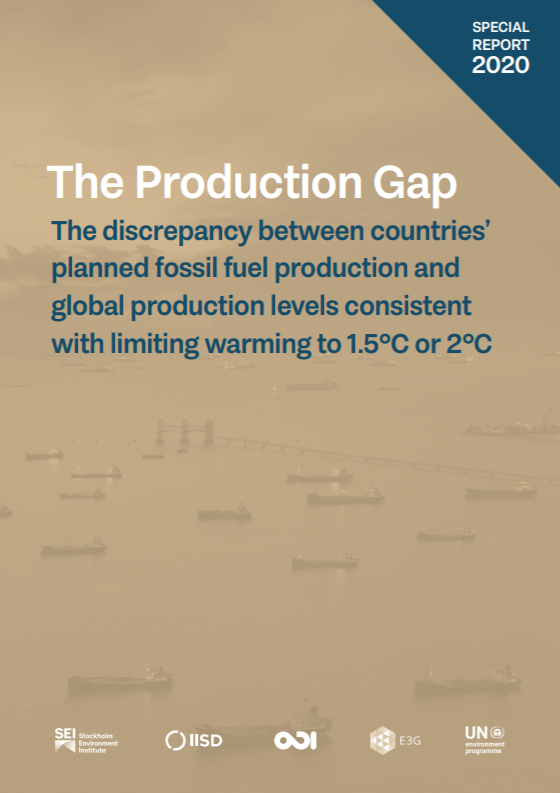Production Gap Report 2020
The Production Gap Report report, first launched in 2019, measures the gap between Paris Agreement goals and countries’ planned and projected production of coal, oil, and gas.


Summary
This year’s special issue of the Report finds that the COVID-19 recovery marks a potential turning point, where countries must change course to avoid locking in levels of coal, oil, and gas production far higher than consistent with a 1.5°C limit.
Its main findings include:
To follow a 1.5°C-consistent pathway, the world will need to decrease fossil fuel production by roughly 6% per year between 2020 and 2030. Countries are instead planning and projecting an average annual increase of 2%, which by 2030 would result in more than double the production consistent with the 1.5°C limit.
Between 2020 and 2030, global coal, oil, and gas production would have to decline annually by 11%, 4%, and 3%, respectively, to be consistent with the 1.5°C pathway.
The COVID-19 pandemic – and the “lockdown” measures to halt its spread – have led to short-term drops in coal, oil, and gas production in 2020. Butpre-COVID plans and post- COVID stimulus measures point to a continuation of the growing global fossil fuel production gap, risking severe climate disruption.
To date, G20 governments have committed over US$230 billion in COVID-19 measures to sectors responsible for fossil fuel production and consumption, far more than to clean energy (roughly US$150 billion). Policymakers must reverse this trend to meet climate goals.
Countries with lower dependence and higher financial and institutional capacity can undertake a just and equitable transition from fossil fuel production most rapidly, while those with higher dependence and lower capacity will require greater international support.
Policymakers can support a managed, just, and equitable wind-down of fossil fuel production through six areas of action: sustainable stimulus and recovery packages, increased support for just and equitable transitions, reduced support for fossil fuels, restrictions on production, improved transparency, and global cooperation.